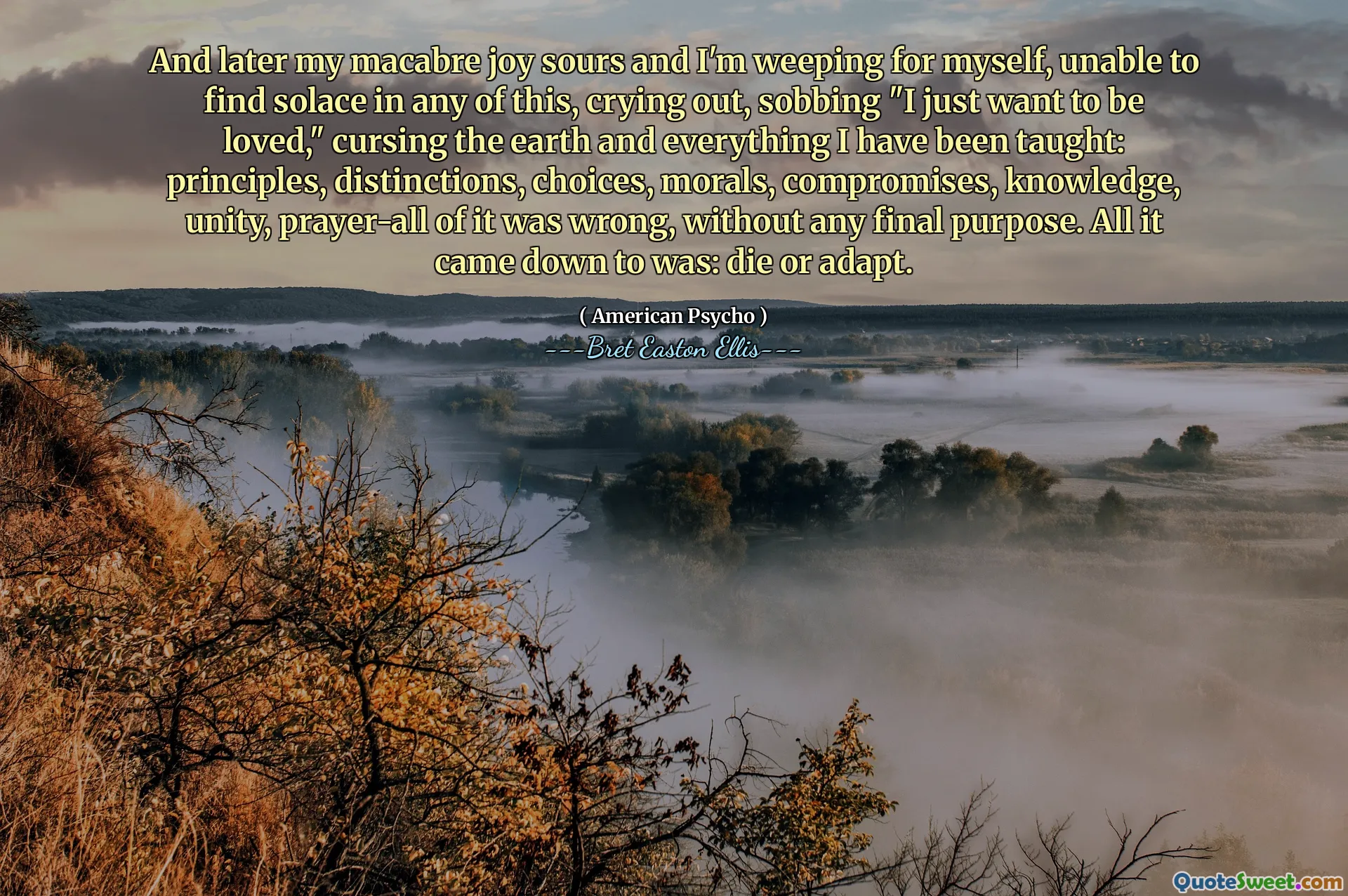
And later my macabre joy sours and I'm weeping for myself, unable to find solace in any of this, crying out, sobbing "I just want to be loved," cursing the earth and everything I have been taught: principles, distinctions, choices, morals, compromises, knowledge, unity, prayer-all of it was wrong, without any final purpose. All it came down to was: die or adapt.
[Markdown format]
This powerful excerpt delves into the depths of despair and existential nihilism. It captures a moment of profound emotional turmoil, where the narrator's former macabre pleasure turns into sour regret, revealing a profound internal struggle. The desire for love, juxtaposed with feelings of disillusionment towards everything previously held as meaningful—principles, morals, knowledge—portrays a crisis of meaning often felt in existential despair. The narrator questions the very core of their beliefs and the purpose of life itself, suggesting that much of human moral and spiritual structure might be illusory or futile.
The raw expression of crying out for love emphasizes a fundamental human need in the face of overwhelming existential meaninglessness. At the same time, the adamant rejection of learned principles and the apparent conclusion that there's no final purpose in life highlight a worldview saturated with despair and nihilism. The stark choice—"die or adapt"—underscores the brutal reality of confronting life's absurdity without comfort or reassurance.
Such reflections resonate deeply with anyone facing despair or questioning the meaning and morality they once relied upon. It echoes philosophical themes from existentialist thinkers like Albert Camus and Jean-Paul Sartre, who explore the absurd and the human confrontation with a silent universe. The excerpt compellingly articulates that in moments of profound crisis, one might feel forced to choose between surrender and resilience, ultimately emphasizing the importance of facing life's inherent uncertainties with authenticity.
Overall, this quote vividly communicates the fragility of human faith in constructed morals and the profound loneliness associated with confronting life's emptiness head-on.
(Book: "American Psycho") - Author: Brandon Easton Ellis





